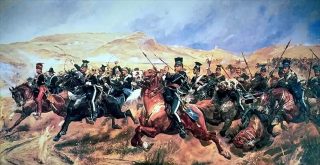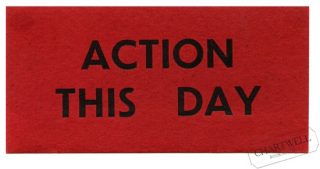I lost my father in 2021 and his death provoked a lot of reflection on mortality, including my own. The fact that we’re all going to die someday is sobering and frightening on one level, and yet it also infuses our life with meaning. In his book Four Thousand Weeks, author Oliver Burkeman writes:
“It is by consciously confronting the certainty of death, and what follows in the certainty of death, that we finally become truly present in our lives.”
The “four thousand weeks” in Burkeman’s title refers to the allotted time we can expect if we’re fortunate enough to live to the age of 80. When you think of it this way, getting the most out of each week, each day, each hour, becomes critically important.
“Time management, broadly defined, should be everyone’s chief concern,” writes Burkeman in in the Introduction to his book and I agree. How we decide to spend our time is how we decide to spend our life, yet most of us fail to appreciate this insight, falling prey to the many distractions that plague our lives and the tyranny of “busyness” that often crowds out more meaningful activities.
I sometimes blame the increasingly frenetic nature of our lives on the encroachment of technology and the unique pressures we experience navigating the vicissitudes of modern life, but even the ancients recognized this dilemma. Seneca, the Roman Stoic philosopher, in his brief treatise, On the Shortness of Life, writes:
“This space that’s been granted to us rushes by so speedily and so swiftly that all save a very few find life at an end just when they are getting ready to live.”
One way to fully appreciate how the inevitable nature of death infuses our life with meaning is to invert the circumstances, and consider what it would be like to live forever. In the face of an infinite lifetime, to decide on one path of life over another would be meaningless, because there would eventually be time to experience all paths. So it’s the certainty of death that drives up the stakes on the big decisions in life.
The beginning of a new year is an excellent time to reflect on the finite nature of our existence, and push ourselves to make the hard choices that will steer us on a path toward greater purpose and meaning. We have been granted this incredible gift – the miracle of our existence – and the freewill to determine what we’re going to do with it. What we do with the gift is really the ultimate question of every human life.
There is no general answer to the question of where we find meaning or purpose in or life – it’s up to each of us to determine our own unique answer. However, there is a principle I like to keep in mind when I reflect on the question, first articulated by Steve Prefontaine, one of my heroes growing up in Eugene, Oregon in the 1970s:
“To give anything less than your best is to sacrifice the gift.” – Steve Prefontaine
Prefontaine was, perhaps the most talented and accomplished American middle distance runner of the 20th century. He competed for the University of Oregon, and at one point he held every American record from 2,000 to 10,000 meters.
Perfontaine’s life was cut short by a car accident in 1975, at the age of twenty-four. He only got 1,300 weeks, but he made the most of them. He recognized that he had a gift – a special talent for running. It’s what motivated him to get up early every morning and run ten miles, always pushing himself to get better. His dedication to his craft and his commitment to excellence modeled the way for me and so many other people he inspired.
For me, the “gift” Prefontaine is referring to is both our allotment of time on earth and the unique talents we have been given. So, as we embark on the gift of another year, how are we going to use our talent to give our lives meaning and purpose?
How are we going to maximize the gift?
Related Articles by Sean Murray
- Finding Your Personal Vision
- Steve Jobs Most Important Decision Making Tip
- Action this Day: How Winston Churchill Got Things Done
- Benjamin Franklin: 10 Lessons on Wisdom
- Viktor Frankl: 5 Lessons from Man’s Search for Meaning
- Ulysses S. Grant: 12 Leadership Lessons
- Lewis & Clark: 5 Leadership Lessons
- Google: 8 Most Important Qualities of Leadership
- Phil Knight: 7 Leadership Lessons from Nike
About the Author
Sean P. Murray is an author, speaker and consultant in the areas of leadership development and talent management. Learn more at RealTime Performance. He also hosts The Good Life Podcast where he interviews people on business leadership and leading a good life.
Follow Me on Twitter: @seanpmurray111


